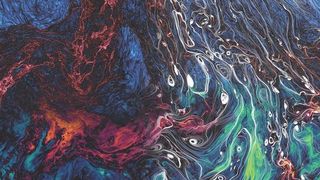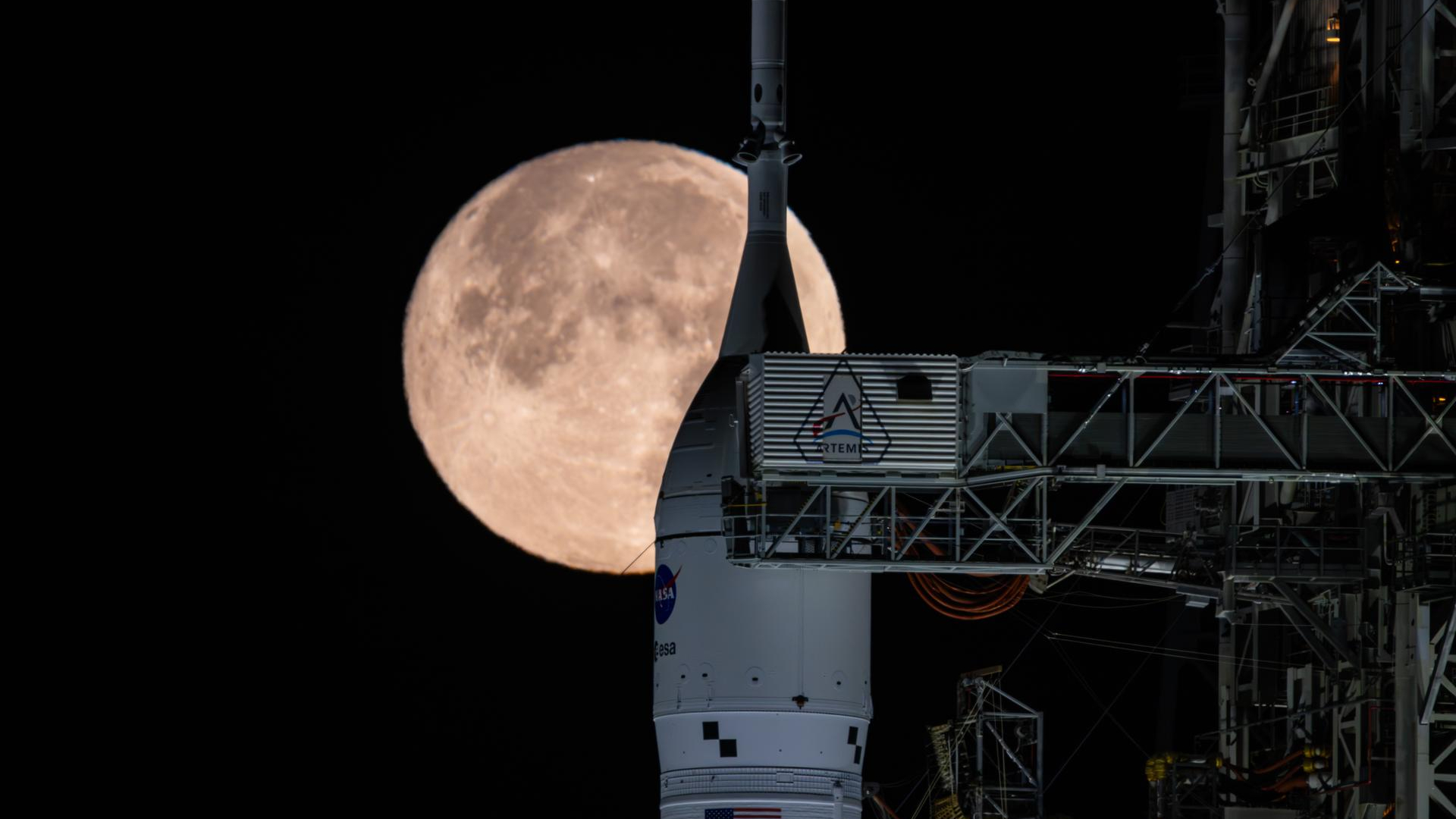
Victoria Corless
A chemist turned science writer, Victoria Corless completed her Ph.D. in organic synthesis at the University of Toronto and, ever the cliché, realized lab work was not something she wanted to do for the rest of her days. After dabbling in science writing and a brief stint as a medical writer, Victoria joined Wiley’s Advanced Science News where she works as an editor and writer. On the side, she freelances for various outlets, including Research2Reality and Chemistry World.
Latest articles by Victoria Corless
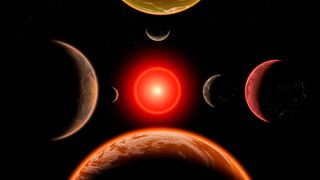
Goodbye Goldilocks: Scientists may have to look beyond habitable zones to find alien life
By Victoria Corless published
Scientists may need to broaden their horizons in their search for alien life.
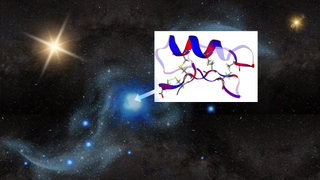
Proteins before planets: How space ice may have created the 1st building blocks of life
By Victoria Corless published
"We used to think that only very simple molecules could be created in these clouds. But we have shown that this is clearly not the case."
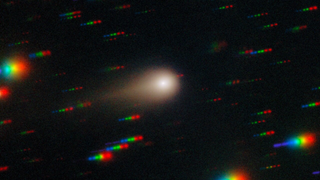
Interstellar comet 3I/ATLAS will be eyed by Mars and Jupiter probes as it zooms past the sun this month
By Victoria Corless published
ESA is making use of spacecraft originally dedicated to its Mars and Jupiter missions to track comet 3I/ATLAS as it continues its journey through our solar system
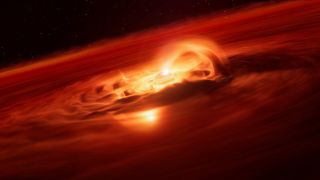
Exoplanet without a sun found gobbling up 6 billion tons of gas and dust per second
By Victoria Corless published
"This is the strongest accretion episode ever recorded for a planetary-mass object."
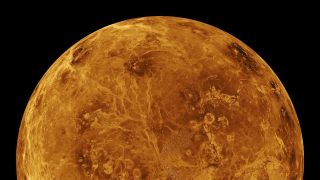
Mysterious crown-like features on Venus may finally have an explanation
By Victoria Corless published
Scientists have proposed a new explanation for Venus' giant, crown-shaped geological features, known as coronae.
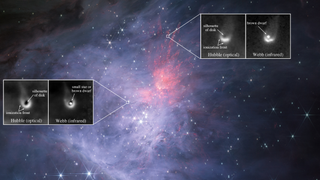
Baby 'failed star' has unusually rich planet-forming disk, James Webb Space Telescope finds
By Victoria Corless published
"The results provide a rare, detailed look at how planet-forming chemistry operates in the extreme environments around brown dwarfs, potentially offering clues to the diversity of worlds beyond our solar system."
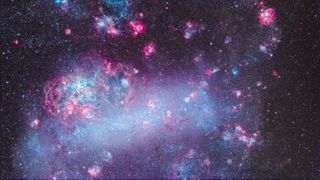
Discovery of 250 'mini galaxies' could help scientists pin down the nature of dark matter
By Victoria Corless published
Only a fraction of the size of the Milky Way, these galaxies have thus far been too faint for most telescopes to spot.
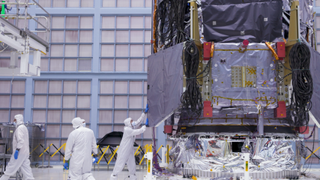
NASA's Roman Space Telescope gets its 'extremely strong sunblock' installed
By Victoria Corless published
Scientists are making milestones on NASA's Roman Space Telescope as Trump continues to threaten the agency's science budget.
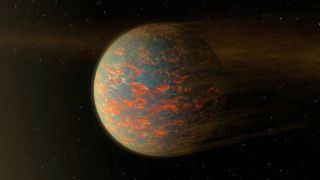
Exotic 'lava worlds' are a hot new frontier in exoplanet science
By Victoria Corless published
Thanks to groundbreaking models and the James Webb Space Telescope, scientists are poised to explore their mysterious evolution and reveal clues about planetary formation across the galaxy.
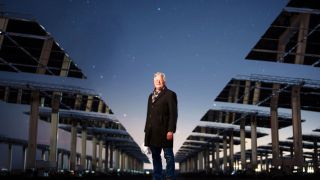
Solar farms could help find dangerous asteroids, scientist says
By Victoria Corless published
By transforming idle heliostats into asteroid detectors, scientists aim to develop a cost-effective method for spotting faint, fast-moving space rocks.

Satellite data reveals 2023 was record-breaking for marine heatwaves — are we at a 'climate tipping point?'
By Victoria Corless published
The impacts ripple into human systems — reducing fishery yields, straining aquaculture and affecting industries that rely on stable ocean conditions.
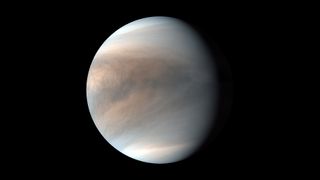
2 Earth weather satellites accidentally spy on Venus
By Victoria Corless published
Japan's Himawari-8 and Himawari-9 satellites, designed to study weather here on Earth, have also been quietly collecting valuable data on Venus for nearly a decade, scientists recently discovered.
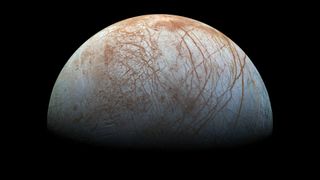
Scientists may have solved a chemistry mystery about Jupiter's ocean moon Europa
By Victoria Corless published
A long-standing mystery about the presence of hydrogen peroxide on Jupiter's icy ocean moon Europa may be closer to being solved.
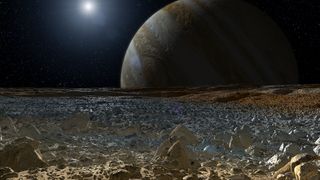
'Chaos' reigns beneath the ice of Jupiter moon Europa, James Webb Space Telescope reveals
By Victoria Corless published
New observations from the James Webb Space Telescope (JWST) are painting a new picture of Jupiter's moon Europa and revealing the hidden chemistry of the icy moon's interior.
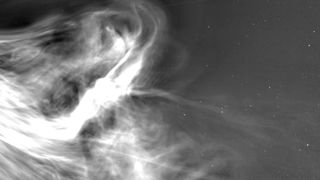
NASA just took the closest-ever images of the sun, and they are incredible (video)
By Victoria Corless published
NASA has released remarkable video captured during the Parker Solar Probe's record-breaking 2024 flyby, offering the closest views of the sun ever recorded.
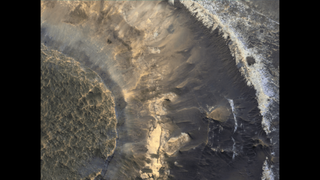
Could signs of Mars life be hidden in its thick layers of clay?
By Victoria Corless published
Mineral-rich layers of clay suggest that ancient life could be possible on the Red Planet
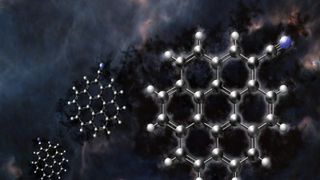
Astronomers discover 'raw materials for life' can form in planetary systems even before stars
By Victoria Corless published
"Each new detection brings us closer to understanding the origins of complex organic chemistry in the universe — and perhaps, the origins of the building blocks of life themselves."
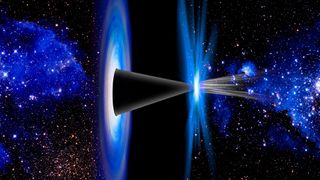
Did our cosmos begin inside a black hole in another universe? New study questions Big Bang theory
By Victoria Corless published
A team of scientists is proposing a bold alternative to the Big Bang theory, suggesting that our universe may have instead formed inside a colossal black hole.
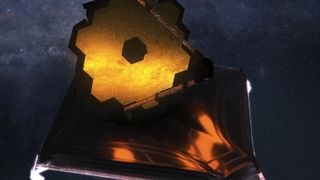
James Webb Space Telescope discovers planets forming in space's most punishing environments
By Victoria Corless published
James Webb Space Telescope finds exoplanets in extreme environments that could potentially be habitable.
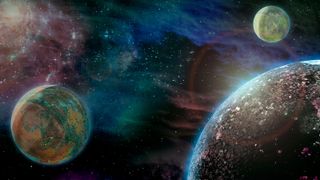
Proposed NASA radio probe could use gravity 'lumpiness' to reveal the insides of alien worlds
By Victoria Corless published
A new probe in development known as GIRO represents a low-cost step toward unlocking the secrets of the outer planets, all through the invisible pull of gravity.
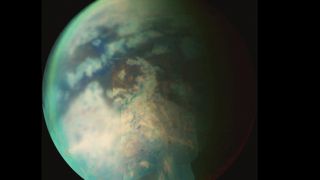
'We've got a new mystery on our hands': Titan's weird wobble just got even stranger
By Victoria Corless published
New research reveals more about why Saturn's large moon tilts, a puzzle that has intrigued scientists for decades.
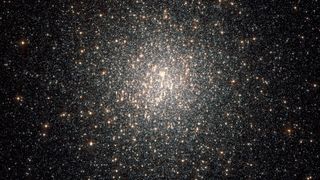
How an odd star in the 'Gaia Sausage' could help solve one of astronomy's most enduring mysteries
By Victoria Corless published
The discovery of a metal-rich star packed with both light and heavy elements hints at exotic stellar explosions and the role of ancient dwarf galaxies in seeding the cosmos with uranium and thorium.
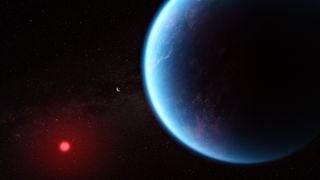
Scientists question possible signs of life on exoplanet K2-18b in new study: 'We never saw more than insignificant hints'
By Victoria Corless published
The skepticism continues over recent claims of possible hints of alien life on exoplanet K2-18b.
Breaking space news, the latest updates on rocket launches, skywatching events and more!

